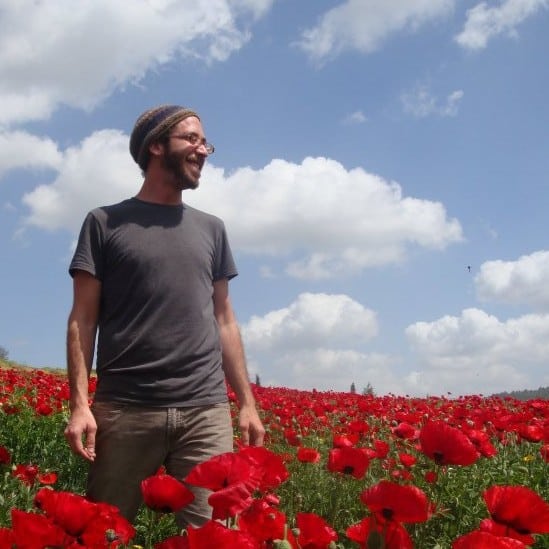by Yigal Deutscher
Jewish culture arose and took shape primarily as a land-based tradition, directly linked to a particular piece of land. Many of the laws, rituals, and beliefs of Jewish faith are directly connected to the seasons, plants, and harvest cycles of the land of Israel. So, over 2,000 years ago, when the Jewish peoplehood began to take shape and root outside of Israel, many of the commandments did not follow them to their new homes. The ‘land-dependent’ laws remained dormant in Israel, while all the other mitzvot served as the foundation for Jewish life in the Diaspora. Shmita, in terms of its laws relating to release of farmland and cessation of agriculture, is within the category of ‘land-dependent’ mitzvot that are only official halacha (Jewish law) when they can be observed on and within the soils of Israel.
During the thousands of years that Jewish culture developed outside of Israel, Shmita was never something that was practiced. In most communities, the memory of Shmita, as a core part of Jewish tradition, faded away. The few Rabbis who were still teaching and writing of Shmita did so in a romantic sense, portraying Shmita as a mystical utopian dream, which we, as a people, would be able to follow once we were building the holy community of Israel on ‘the land,’ once again, having finally returned from exile. But even in these writings, there was not a movement to begin practicing Shmita laws wherever we may have found ourselves.
So here we are, in North America, getting quite excited about Shmita. As the conversation around Shmita is rising in Jewish communities across North America, we need to address a core question: What are our intentions for Shmita outside of Israel?
Perhaps there is no real halachic imperative or need to observe Shmita outside of Israel. Yet, in its symbolic form, Shmita offers so much simply as a guiding point. There is an inherent value- beyond specific location- in having an entire peoplehood, together, in a shared rhythm, simply stop, and rest, and release.
The Shmita question is profound in so many ways: What would it look like to develop our society around a seventh year fallow? This question alone is so valuable. It is so powerful that it can be asked beyond the context of Shmita, beyond the question of Judaism, beyond the question of Israel. The implications of this question alone ripples with possibilities that can have profound impacts on the way we live our lives. Hidden within the laws of Shmita are potent values around faith, trust, generosity, and community. These values are at the heart of what the Shmita conversation in North America is about. While we are not in Israel, how can we distill the laws of Shmita into clear and potent values?
And as we have this conversation in North America (and anywhere else outside of Israel), the hope is that we can use this as a bridge of connection to the land and communities of Israel, where they are asking this question in quite a different way. We hope that these movements of reimagining Shmita will feed one another, and support one another, so that all Jews can reclaim Shmita as a core part of their Jewish heritage, regardless of where they live. And we hope that the more Shmita is remembered within the Diaspora Jewish community, it will add new meaning and intention to our ancestral and personal connection to Israel: the land of Israel, her soils, her watersheds, her plants, and all the peoples who call the land home and tend to it’s health.
The more the Jewish communities outside of Israel can instill Shmita values into their community and organizational practices, the greater the ripples will be felt in Israel. And similarly, the more the Jewish communities of Israel can begin actively exploring how to welcome this ancient tradition, the more it will be reflected abroad. This is a shared movement, one that we are all invited to participate in together.
 Yigal Deutscher is an educator, farmer and permaculture designer. He has participated in the Adamah fellowship, and trained with the University of California, Santa Cruz (Center for Agroecology & Sustainable Food Systems), as well as with the Permaculture Research Institute in Australia. Until 2010, he was the farm manager and permaculture educator at the Chava v’Adam farm in Israel, where he also founded the Shorashim/Eco-Israel apprenticeship program. He is the founder of 7Seeds, an educational platform combining Jewish indigenous teachings & Permaculture Design strategies, as well as the manager of Hazon’s Shmita Project.
Yigal Deutscher is an educator, farmer and permaculture designer. He has participated in the Adamah fellowship, and trained with the University of California, Santa Cruz (Center for Agroecology & Sustainable Food Systems), as well as with the Permaculture Research Institute in Australia. Until 2010, he was the farm manager and permaculture educator at the Chava v’Adam farm in Israel, where he also founded the Shorashim/Eco-Israel apprenticeship program. He is the founder of 7Seeds, an educational platform combining Jewish indigenous teachings & Permaculture Design strategies, as well as the manager of Hazon’s Shmita Project.
